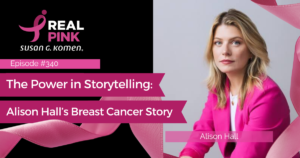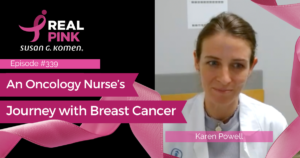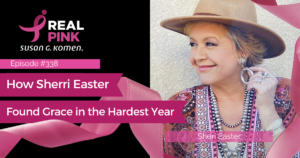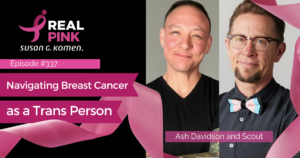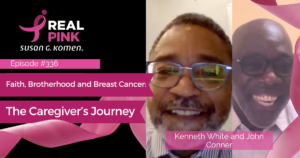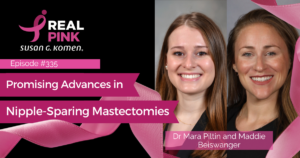Real struggles.
Real help.
Real courage.
Real Pink is taking real conversations about breast cancer from the doctor's office to the living room. Hosted by Adam Walker, episodes feature candid conversations with survivors, researchers, physicians, and more. Find answers to your toughest questions and clear, actionable steps to live a better life, longer. At Real Pink, compassionate storytelling meets real inspiration, and real support.
Breast Cancer Resources
Find the information you need.
Risk Factors
Understand the factors that may affect your risk of getting breast cancer.
Screening & Detection
Screening tests are used to find breast cancer before warning signs or symptoms.
Diagnosis
Learn about the process of diagnosis, follow-ups, and factors that affect prognosis and treatment.
Treatment
Learn about treatment for early and locally-advanced breast cancers (stages I, II and III).
Financial Assistance
Here you’ll find resources to help with financial concerns.
Tools and Resources
Here you'll find information about our helpline, as well as resources and interactive tools.
Recent Episodes
The Power in Storytelling: Alison Hall’s Breast Cancer Story
An Oncology Nurse’s Journey with Breast Cancer
How Sherri Easter Found Grace in the Hardest Year
Navigating Breast Cancer as a Trans Person
Faith, Brotherhood and Breast Cancer: The Caregiver’s Journey
Promising Advances in Nipple-Sparing Mastectomies
Join Our Mailing List
Get the latest breast cancer news and information, and updates about Real Pink.




